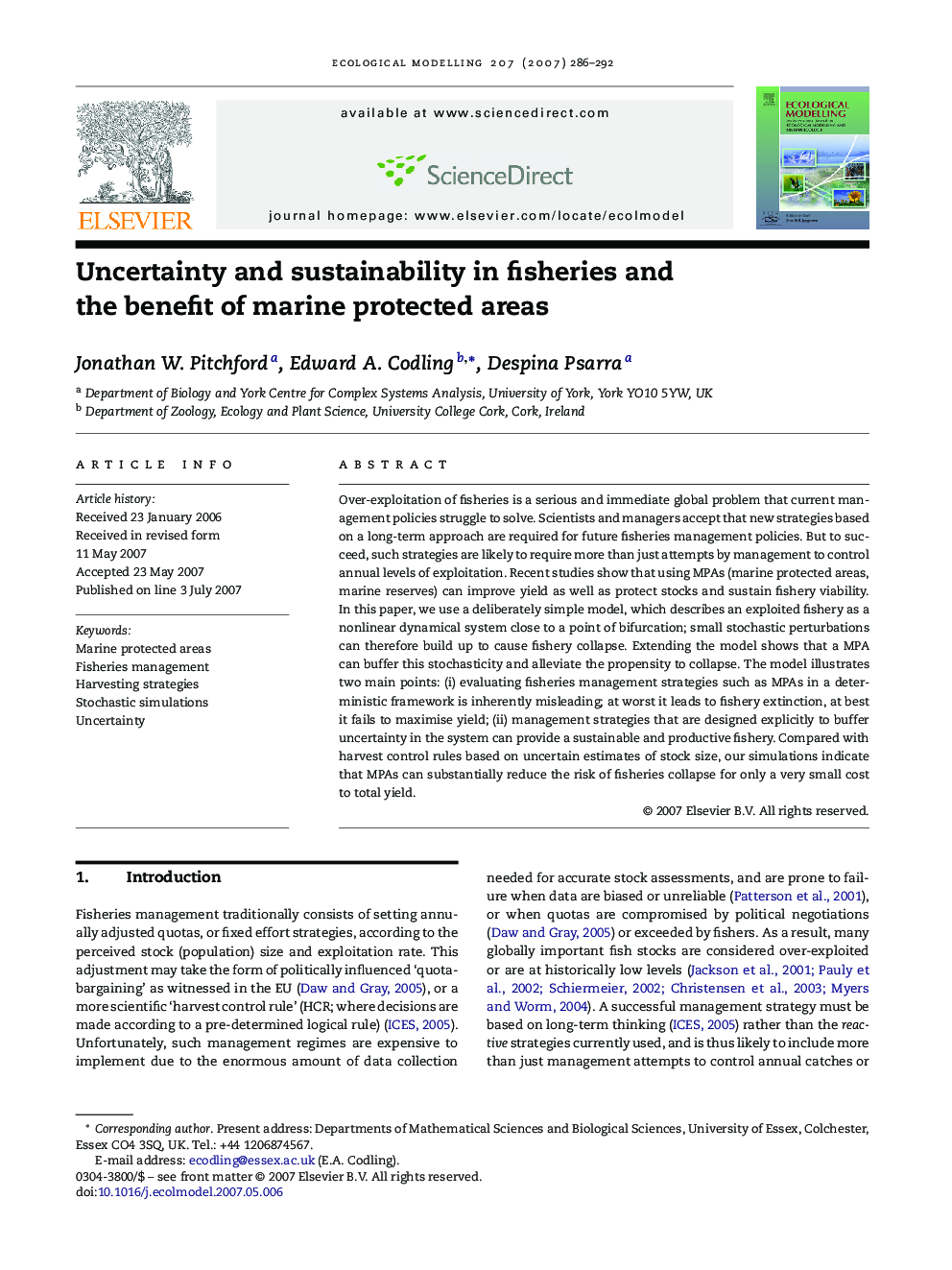| کد مقاله | کد نشریه | سال انتشار | مقاله انگلیسی | نسخه تمام متن |
|---|---|---|---|---|
| 4378470 | 1617543 | 2007 | 7 صفحه PDF | دانلود رایگان |

Over-exploitation of fisheries is a serious and immediate global problem that current management policies struggle to solve. Scientists and managers accept that new strategies based on a long-term approach are required for future fisheries management policies. But to succeed, such strategies are likely to require more than just attempts by management to control annual levels of exploitation. Recent studies show that using MPAs (marine protected areas, marine reserves) can improve yield as well as protect stocks and sustain fishery viability. In this paper, we use a deliberately simple model, which describes an exploited fishery as a nonlinear dynamical system close to a point of bifurcation; small stochastic perturbations can therefore build up to cause fishery collapse. Extending the model shows that a MPA can buffer this stochasticity and alleviate the propensity to collapse. The model illustrates two main points: (i) evaluating fisheries management strategies such as MPAs in a deterministic framework is inherently misleading; at worst it leads to fishery extinction, at best it fails to maximise yield; (ii) management strategies that are designed explicitly to buffer uncertainty in the system can provide a sustainable and productive fishery. Compared with harvest control rules based on uncertain estimates of stock size, our simulations indicate that MPAs can substantially reduce the risk of fisheries collapse for only a very small cost to total yield.
Journal: Ecological Modelling - Volume 207, Issues 2–4, 10 October 2007, Pages 286–292